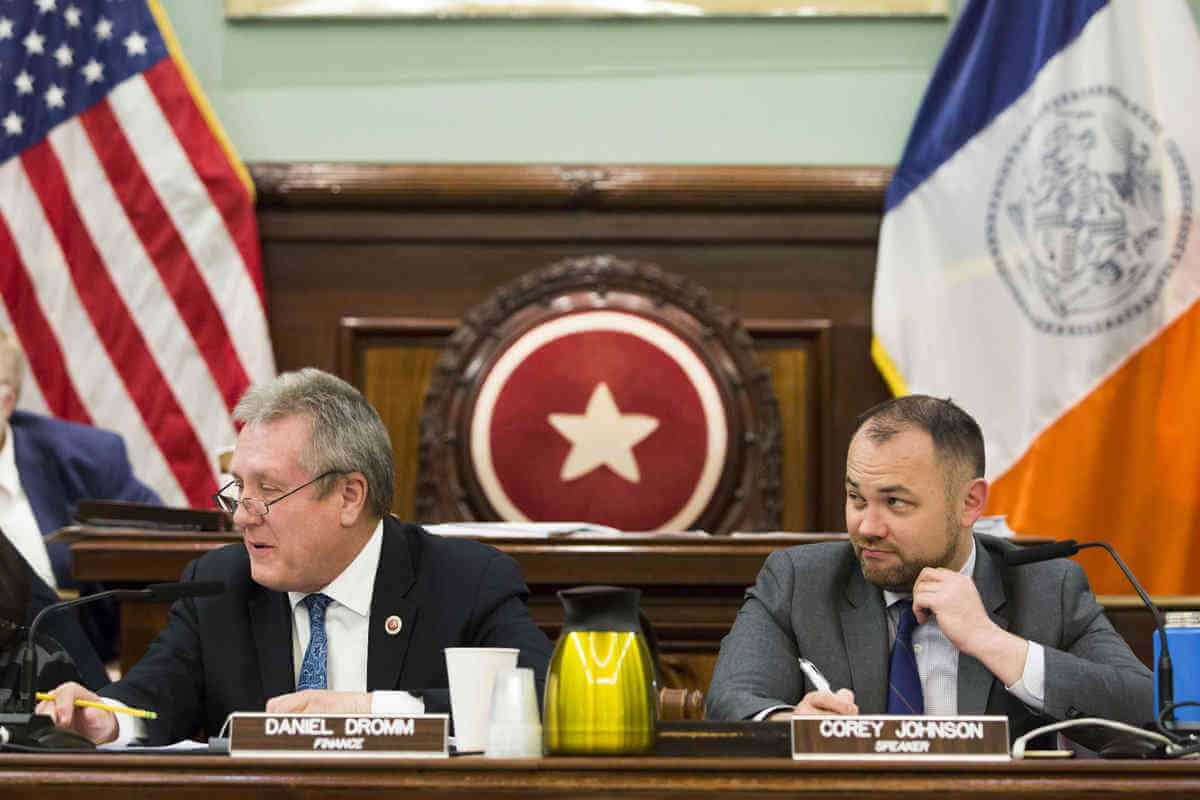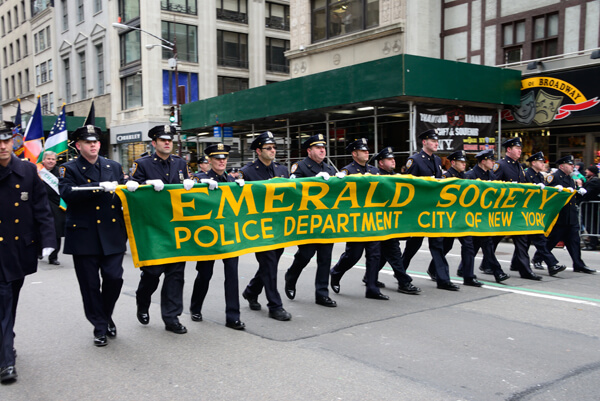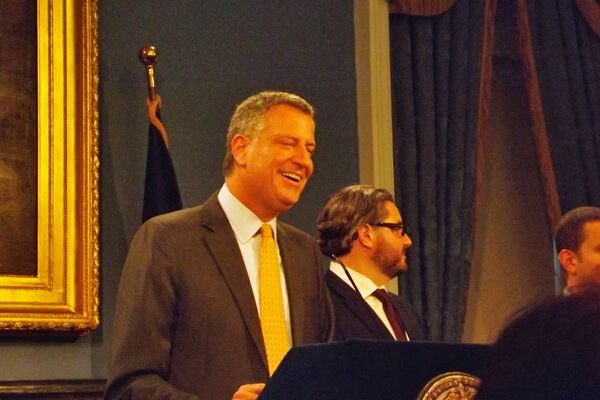The City Council nearly doubled its funding of LGBTQ initiatives in the 2020 fiscal year budget, but only a small portion of that is permanent and out gay Queens Councilmember Daniel Dromm, the Finance Committee chair, is reminding folks that the funding fight for queer causes is far from over.
The Council, led by out gay Speaker Corey Johnson, is notably expanding the funding of LGBTQ initiatives from $10.9 million to $19 million this year. The largest chunk of the overall funding — $7.7 million — is steered toward ending the HIV/AIDS epidemic, while $2.3 million is dedicated to continuing the Trans Equity Program, which provides broad support to the transgender and gender nonconforming population.
The Council is also giving $1.5 million to LGBTQ senior services, $1.2 million to LGBTQ youth mental health programs, $1.1 million for HIV/ AIDS faith-based initiatives, and $800,000 for LGBTQ-inclusive curriculum in city schools.
“Our local government must fund programs that support the LBGTQ community, particularly transgender people,” Johnson said in a written statement. “Violence against transgender women of color is on the rise, and they need our help.”
The de Blasio administration’s funding initiatives complement certain of the Council programs, such as $1 million in LGBTQ education-related support.
Most of the Council’s funding, however, is not baselined, meaning that it is not embedded into the city budget for future years and is subject to cuts. In fact, the only baselined Council funds for LGBTQ initiatives are $365,000 for gender equity liaisons and $390,000 for transgender healthcare training. Continuing this funding level will require negotiation with the mayor’s office in future budgets.
Dromm, who chairs the Finance Committee, heaped strong praise on city leaders, especially Johnson, for allocating more money towards the LGBTQ-related initiatives. But he also pointed out the sobering reality that it is simply not enough money.
“We’re proud of it, don’t get me wrong,” said Dromm, a former teacher. “But it’s a bit of a drop in the bucket in the sense of the overall budget.”
Among the LGBTQ education initiatives include direct instruction and the development of gender and sexuality alliances (GSAs), formerly known as gay-straight alliances. But even the direct instruction is spotty because city schools are not required to implement LGBTQ curriculum. Rather, schools are able to opt into the curriculum.
That reality has created a ripple effect: Because many schools do not teach LGBTQ history, Dromm said, many teachers do not understand the community’s history well enough to teach it to others.
To that end, Dromm said one of his objectives is to get an LGBTQ-related question on the New York State Regents exams, which are standardized tests administered by the state in major subjects and often drive teachers to shape their instruction around the questions.
There are some other areas of funding that will undoubtedly have a positive impact on the LGBTQ community. The Council is providing $1 million toward fighting the rise of hate crimes in the city, some of which will fund nonprofit groups working to fight hate crimes. The Council is also setting aside $710,000 to open a new Hate Crimes Unit.
In another related boost — this time for LGBTQ youth and the wider student population — the Council is pumping more money into funding guidance counselors and social workers. Brooklyn Councilmember Mark Treyger, who chairs the Education Committee, played a significant role in pushing for those funds.
“[Social workers] are not specifically for LGBT kids, but often times LGBT kids will exhibit negative behaviors because of bullying and poverty and homelessness, etc.,” Dromm said. “Having the social workers there will be a big plus for LGBT students.”
As Dromm welcomed those increases, he again highlighted glaring disparities: The Department of Education has far more school safety agents than they do guidance counselors.
“What is their priority there? It’s more the policing of the system than helping the system,” he said.
Dromm vows to continue pushing for more funding of LGBTQ programs in the future, but for now he is at least encouraged by the Council’s success in funding initiatives that are in need of the money sooner rather than later.
“Because of these substantial increases, our community’s most at-risk members will have the resources they need to live happy and healthy lives,” he said. “As a longtime gay activist who has been fighting for our community’s fair share of funding for many years, I am elated by how far we have come.”


































